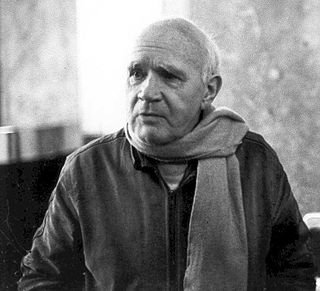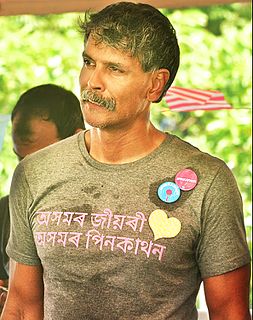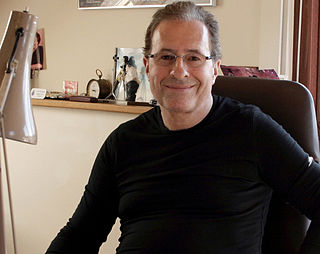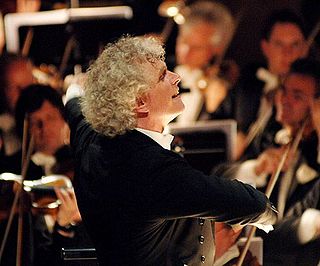Top 1200 Culture And Language Quotes & Sayings - Page 15
Explore popular Culture And Language quotes.
Last updated on October 13, 2024.
India is a very, very old country with a history, culture and tradition like Italy. And we can use the English language to be in touch. Then India's industrial situation is similar to us. Both have big companies but are dominated by small and medium-sized companies. It is extremely important for both to do joint ventures.
We may very well wake up in the not-too-distant future in a culture that is not only unreceptive but openly hostile to the church and the gospel of Jesus Christ, a culture in which those who proclaim the gospel will be labeled as bigots and fanatics, a culture in which persecution of Christians will be not only allowed but applauded.
No great, inspiring culture of the future can be built upon the moral principle of relativism. For at its bottom such a culture holds that nothing is better than anything else, and that all things are in themselves equally meaningless. Except for the fragments of faith (in progress, in compassion, in conscience, in hope) to which it still clings, illegitimately, such a culture teaches every one of its children that life is a tale told by an idiot, signifying nothing.
The real controversy comes with anthropologists - not all, but some - who see themselves as studying culture, and they then see culture from the perspective of humans, which is what they study. From their perspective, or, from some of their perspectives, it's sort of heresy to even talk about culture in any other animal. Others would say, "Yeah, you can talk about it, but our definitions of culture are so utterly different from yours and include things like values, and so on, which you've never shown to exist in any of these other creatures."
America is an open society, more open than any other in the world. People of every race, of every color, of every culture are welcomed here to create a new life for themselves and their families. And what do these people who enter into the American mainstream have in common? English, our shared common language.
The assumption that the larger culture agrees with Christians on values issues led to evangelicals' minimizing the theologically distinctive aspects of Christian witness. It also set up evangelicals to be disappointed when the culture did not turn out the way many expected it to turn out. So our response ought to be that we are always, in every culture, strangers in exile.
We are in the process of creating what deserves to be called the idiot culture. Not an idiot sub-culture, which every society has bubbling beneath the surface and which can provide harmless fun; but the culture itself. For the first time, the weird and the stupid and the coarse are becoming our cultural norm, even our cultural ideal.
The culture of chefs is a melting pot, and I always say this - if we could put all the heads of state around a table, each representing their food culture, and then each take one bite of the other's and pass it to the right, and then explain the ideals and culture around those bites, our world problems would be easier to solve.
Teaching literature is teaching how to read. How to notice things in a text that a speed-reading culture is trained to disregard, overcome, edit out, or explain away; how to read what the language is doing, not guess what the author was thinking; how to take evidence from a page, not seek a reality to substitute for it.
I'm always looking for ways to explore the politics of the everyday. For me, the proverbs were a way of bringing in this ancient wisdom that in Arabic culture is often quoted. Those proverbs are such a huge part of the language and parts of people's every day. This is the wisdom that we use in our everyday life but we're not always listening to.
I was on television a couple of years ago and the reporter asked me, "How does it feel being on mainstream media? It's not often poets get on mainstream media." I said, "Well I think you're the dominant media, the dominant culture, but you're not the mainstream media. The mainstream media is still the high culture of intellectuals: writers, readers, editors, librarians, professors, artists, art critics, poets, novelists, and people who think. They are the mainstream culture, even though you may be the dominant culture."
I sing only in Meronian - my own language - but there are also elements of English and Finnish languages in our songs. When we use the spiritual Meronian language, the word 'international' doesn't do justice to our band. This kind of psychic language's means of communication can reach galaxies beyond our planet, not to mention the other living and inanimate entities of our own planet.
A faith in culture is as bad as a faith in religion; both expressions imply a turning away from those very things which culture and religion are about. Culture as a collective name for certain very valuable activities is a permissible word; but culture hypostatized, set up on its own, made into a faith, a cause, a banner, a platform, is unendurable. For none of the activities in question cares a straw for that faith or cause. It is like a return to early Semitic religion where names themselves were regarded as powers.
For language to have meaning, there must be intervals of silence somewhere, to divide word from word and utterance from utterance. He who retires into silence does not necessarily hate language. Perhaps it is love and respect for language which imposes silence upon him. For the mercy of God is not heard in words unless it is heard, both before and after the words are spoken, in silence.



























































